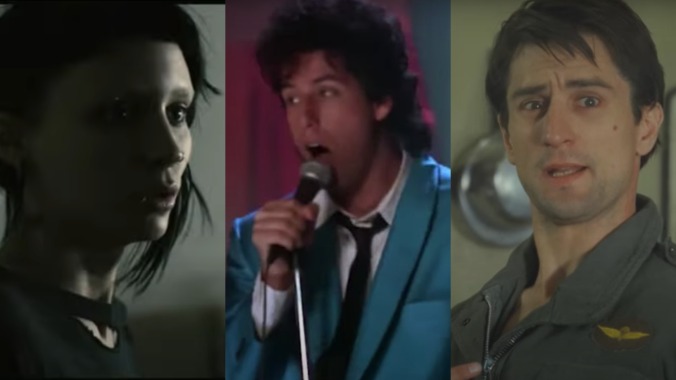The 11 best films on Netflix in January 2022
An eclectic mix of cult classics, blockbuster hits, and bold auteur statements to ring in the new year

From left: The Girl With The Dragon Tattoo, The Wedding Singer, Taxi Driver Screenshot: YouTube
As the calendar turns from 2021 to 2022, movie theaters enter what’s traditionally been a dumping ground for all the film deemed unworthy of a high-profile November or December slot on the big screen. No such rut exists at Netflix, whose catalog adds singular films by fascinating filmmakers and a handful of modern classics in January of 2022. Oh, and Interview With The Vampire—which might not be what you’d call a “great film,” but it is a timely addition, given the recent death of Vampire Chronicles author Anne Rice, and the upcoming AMC series.
 Keep scrolling for more great stories.
Keep scrolling for more great stories.
